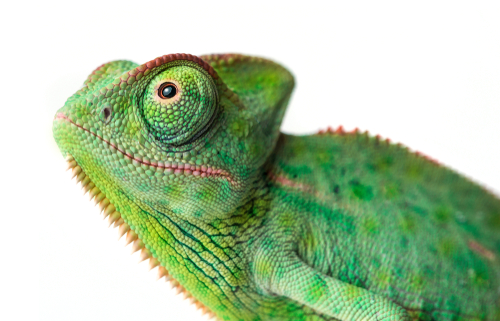
Sometimes finding a rental home or apartment is a challenge when you have pets. It is even harder to find one that accepts what landlords consider as “unusual pets.” Learn more about what constitutes an unusual animal, tips for renting a property with these pets, and other things to keep in mind as a tenant and a landlord.
What is an Unusual Pet?
An unusual pet is any pet that isn’t the norm in renting properties such as dogs and cats. Examples of these pets include; rats/rodents/guinea pigs, certain bird breeds, reptiles/snakes, and any exotic animals. Some of these animals are not legal in rental homes (or at all), while others may be legal but go against rental policies. There are some tips and tricks to renting with your unusual pet that we will discuss below.
- Examples of Illegal Pets (According to The Spruce Pets Website): Wild felines, wild canines, bears, raccoons, skunks, foxes, and certain venomous snakes. For a more detailed list, look up your local state laws.
- Examples of Legal, but Unusual Pets: Sugargliders, hedgehogs, non-venomous snakes, bearded dragons, chinchilla, a pot-bellied pig, tarantula, and more. Again, do your research before purchasing any exotic or unusual pet.
Which Legal Unusual Pets are Worrisome to Landlords?
We are sure by now you can tell many landlords don’t allow any unusual pets as it can pose a higher risk. However, the ones that do may still avoid several breeds including but not limited to these:
- Pot-Bellied Pig: First of all, there are many “pot-bellied pigs” for sale that don’t end up being the size indicated ahead of time. This can become an issue as the animal grows. Besides, they can be rambunctious, cause a lot of damage, and will not do well in smaller properties and especially properties without a yard.
- Birds of Any Sort: Birds may be allowed as they can be and usually are caged. However, they are typically noisy pets. Birds might not be permitted in multi-family properties or townhomes, condos, etc. In single-family rentals, birds may be okay! There are many illegal birds out there, so be aware of this as both a renter and a landlord.
- Snakes: Snakes can be kept in a cage, but they are also known to escape. Although they may be harmless, they certainly scare a lot of people. Any building that is multi-family or has shared space may not want to allow snakes.
What to Expect When Renting with an Unusual Pet
There are some things that you will need to expect when renting a place to live while owning an unusual pet. These items are as follows:

- Higher deposit: Be prepared to be charged a higher deposit as exotic and unusual pets may be more susceptible to creating messes and damages. With that said, almost all landlords charge pet fees, but they will likely be lower for a dog or cat vs. a large or exotic animal.
- Be upfront: Always be upfront with your landlord or prospective landlord about the pet you have/are considering getting. Hiding it could result in eviction and fines, so it is always best to be honest with your landlord.
- Educate your landlord (or potential landlord): If your landlord is on the fence about whatever pet you have, educate them on why the pet is good and well-behaved. Of course they will risk damage and noise with any animal dogs and cats included, so what makes an unusual pet riskier? If it doesn’t, explain why! If it does, educate them on training and additional precautions to keep the property in good shape, neighbors safe and noise levels down. Sometimes an explanation on that animal could go a long way.
- Have proper documentation ready: Also, be prepared to show documentation if the animal is approved to live on the property. This may include proof of training, vet records, purchase records, and anything else of that sort.
Other Tips for Renters with Unusual Pets
- Do your research ahead of purchasing a pet: Before even purchasing an exotic or unusual pet, do your research. You need to be aware of any risks with that animal, such as temper issues, as well as what it will take to take care of it. Seeing a cute pet in a pet shop is always tempting, but research is vital to be sure you can handle it, rent with it and be sure it is safe for you, your home and family (even if it is a legal pet!).
- Know the risks: Know the risks not only of the animal, its temper, etc. but the risks of renting a home with the animal. Questions to research are what if any rental properties nearby will accept this pet? If you find properties to allow the pet, what are their associated fees and policies?
- Be prepared to spend more: As we mentioned above, a larger deposit is likely for an unusual pet, so be ready to shell out extra money. Doing research and visiting rental properties before renting could help you determine how much to budget for pet rent/fees.
- Have a plan in mind to minimize damage if applicable: If there is a way to guarantee or minimize the pet’s damage or bad potential bad behaviors, have this plan in mind ahead of time. This plan may include, but is not limited to the following;
Landlord Tips for Accepting Unusual Pets
- State laws: Each state has its requirements on what pets are legal or not. This information is critical to know before allowing any unusual animal to live on the property. The animals discussed above in the legal and illegal sections are all by Maryland law; however, the list is much more extensive than our summary. Learn more about Maryland’s exotic pet laws here.
- Deposit: Always require a higher pet deposit than you would typical pets. This will protect the property from damage and perhaps deter current residents from purchasing unusual or exotic pets. The exact amount is based on the type of pets and the known risks of having that animal as a pet (in regards to homes, damage, etc.).
- Well-written lease: A well-written lease is key for making it clear upfront that certain animals will not be permitted under any circumstances. It may be smart to have a property management company or real estate lawyer look over that section (or the entire lease) for you to be sure it includes all important key points.
Points to Include in an Addendum
There are some points that you must include in the pet addendum section of the lease. These include:
- Detailed pet policy
- Pet fees, deposit and other relevant costs
- A place for the resident to fill out what animal they have and include the vaccine records
- The number and types of pets allowed
- Any weight limits on pets
Thinking of accepting exotic pets in your Baltimore County rental property? Contact a Baltimore County property manager to discuss the risks of accepting unusual pets at your rental property.
